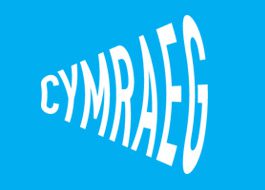Today the Welsh Government and the Welsh Language Commissioner published the results of the Welsh Language Use Survey 2013-15.
The survey provides a comprehensive picture of how Welsh speakers are using the language. The survey was commissioned jointly to understand the level of people’s ability in the language, how often they use it and in what contexts.
The main survey results were:
- Both the percentage and the number of fluent Welsh speakers are fairly similar to those in the Welsh Language Use Surveys of 2004-06, although 131,000 more people now say that they speak a little Welsh
- The percentage of people in Wales who speak Welsh daily has not changed since the Welsh Language Use Surveys of 2004-06, and there is a clear link between fluency and areas with the highest concentration of Welsh speakers.
- The areas with the highest concentration of fluent Welsh speakers (Gwynedd, the Isle of Anglesey, Ceredigion and Carmarthenshire) saw the largest decreases in the number of fluent Welsh speakers since 2004-06. This reflects the decrease in the number of Welsh speakers in those areas noted in the 2011 Census.
- The largest increase in the number of fluent Welsh speakers since 2004-06 was seen in Cardiff and Rhondda Cynon Taf, with over 7,000 more fluent Welsh speakers in Cardiff and over 5,000 in Rhondda Cynon Taf.
- Young Welsh speakers are more likely to have learnt to speak Welsh at school than anywhere else while older Welsh speakers are more likely to have learnt Welsh at home as a young child than elsewhere.
- Over half of Welsh speakers try to use Welsh, at least occasionally, when dealing with public organisations
First Minister of Wales, Carwyn Jones, said:
“This survey gives us a timely and helpful picture of the use of the language across Wales. There is a lot to be positive about here, with an increasing number of Welsh speakers speaking a little welsh and with areas like Cardiff showing a significant increase in the use of the language.
“This is a crucial time for the language and, as a Government, we remain determined to address the challenges it faces, ensuring that the language has a thriving and secure future across Wales. We must not become complacent.
“Encouraging people to use the language in their daily lives is at the heart of Bwrw Mlaen, our vision for the future of the language. The new Standards will also help by creating clear legal rights.
“It is crucial that people have the opportunity to practice their Welsh and boost their confidence levels – be it in education, in the workplace or socially. There is already a great deal of good work underway across Wales which reinforces our policy vision of focussing on increasing use as well as numbers of Welsh speakers. By working together we can build on this and ensure a living language both today and for future generations.”
Welsh Language Commissioner, Meri Huws, said:
“The findings of the survey are useful in offering a better understanding of how well people in Wales can speak Welsh, how often, when and with whom they use the language. This information enriches our understanding of the position of the Welsh language and the use of available Welsh language services.
“This survey will provide the evidence-base for the Welsh Language Commissioner’s first 5 year report on the position of the Welsh language which will be published in 2016. By furthering our understanding of how people use the Welsh language, the survey will contribute towards my wider vision for the Welsh language to be central to everyday life in Wales as well as offer a strong base for language planning in Wales for the coming years.
“The findings highlight some of the challenges that remain in terms of people’s ability to use Welsh across Wales. The work around the new Standards and our ongoing programme with over 200 organisations will play a part in addressing these inconsistencies. I trust that the information in the report will be useful to a range of organisations and individuals with responsibility for planning and delivering Welsh language services.”
Help keep news FREE for our readers
Supporting your local community newspaper/online news outlet is crucial now more than ever. If you believe in independent journalism, then consider making a valuable contribution by making a one-time or monthly donation. We operate in rural areas where providing unbiased news can be challenging. Read More About Supporting The West Wales Chronicle


























